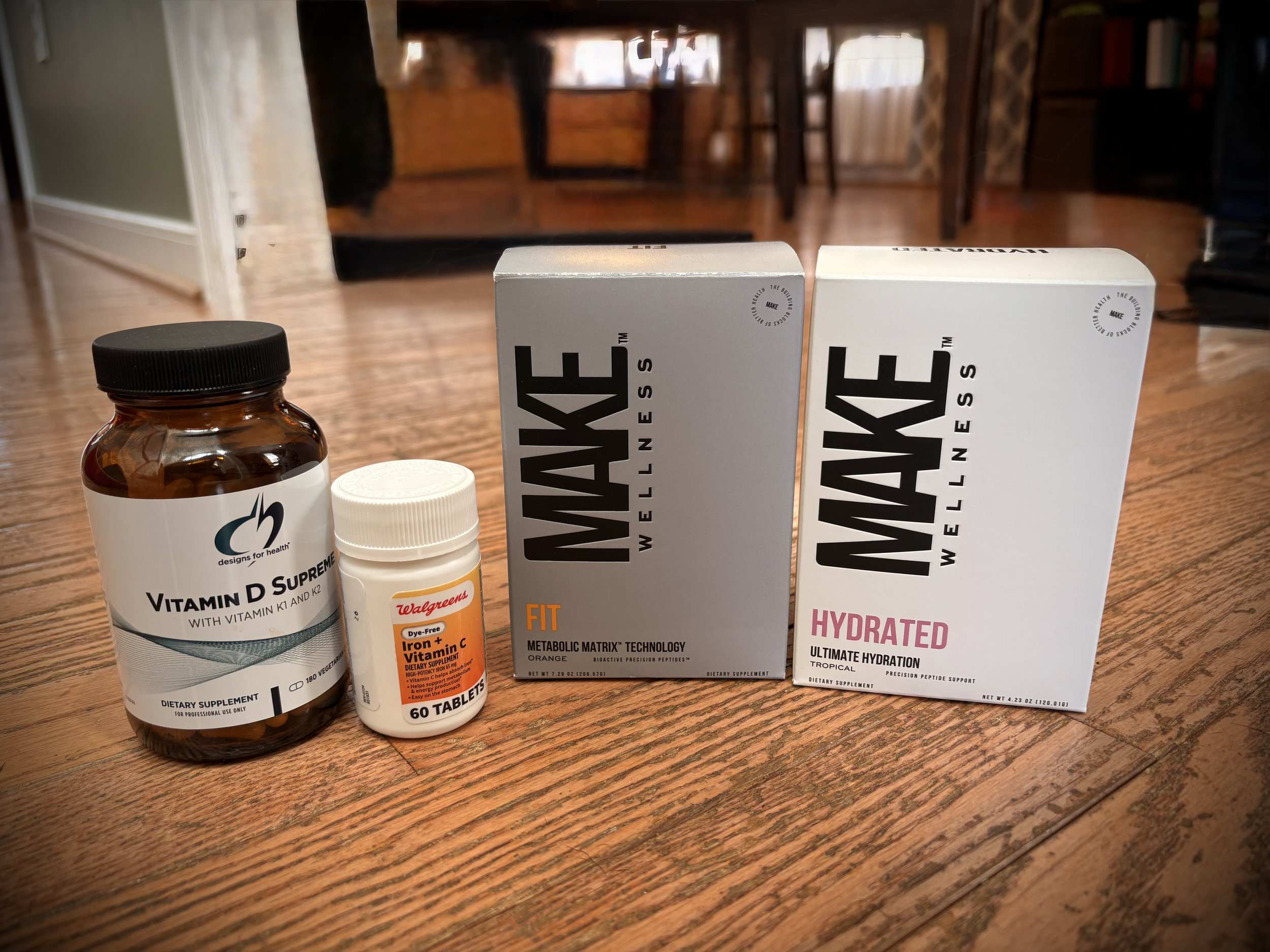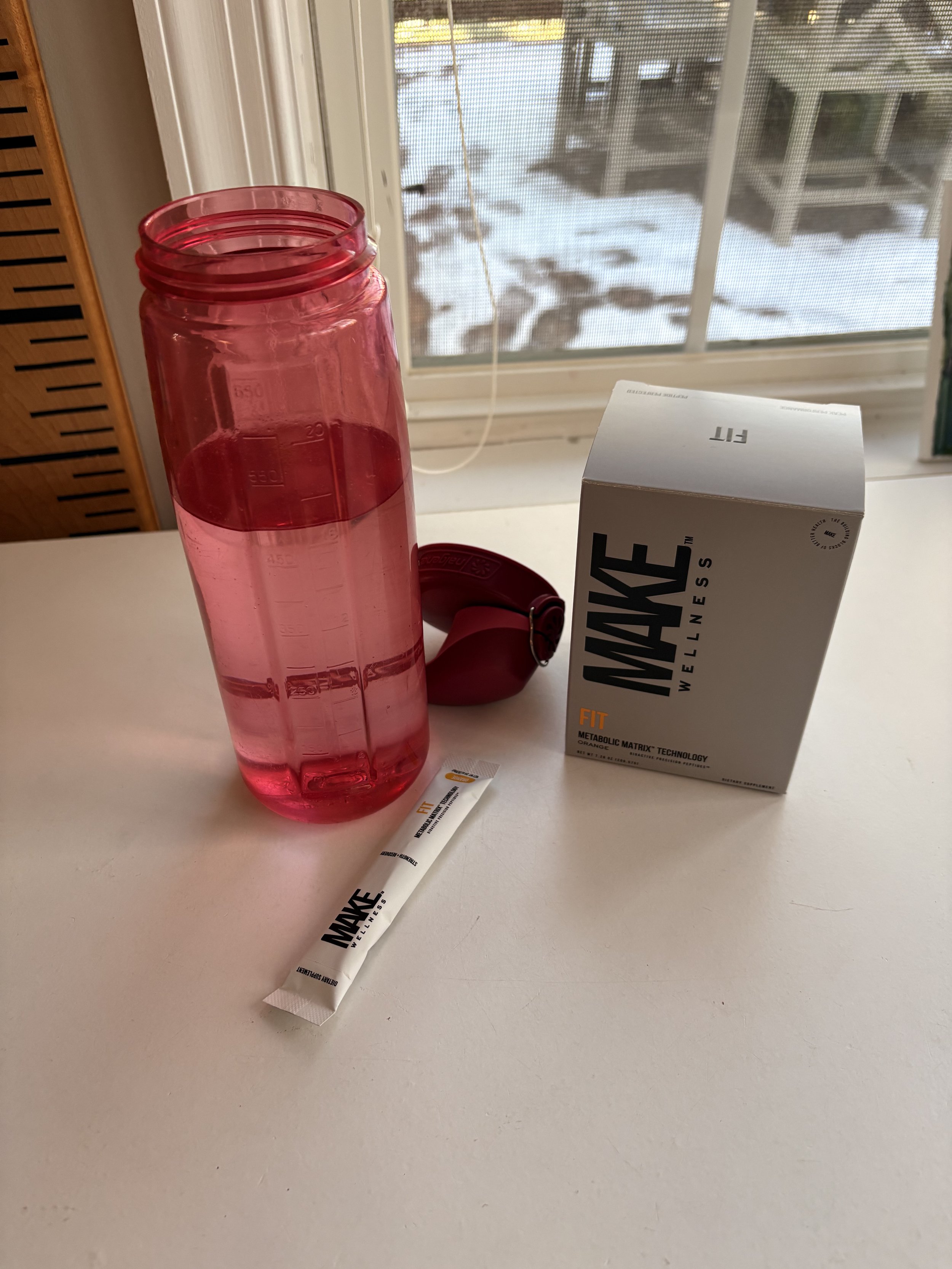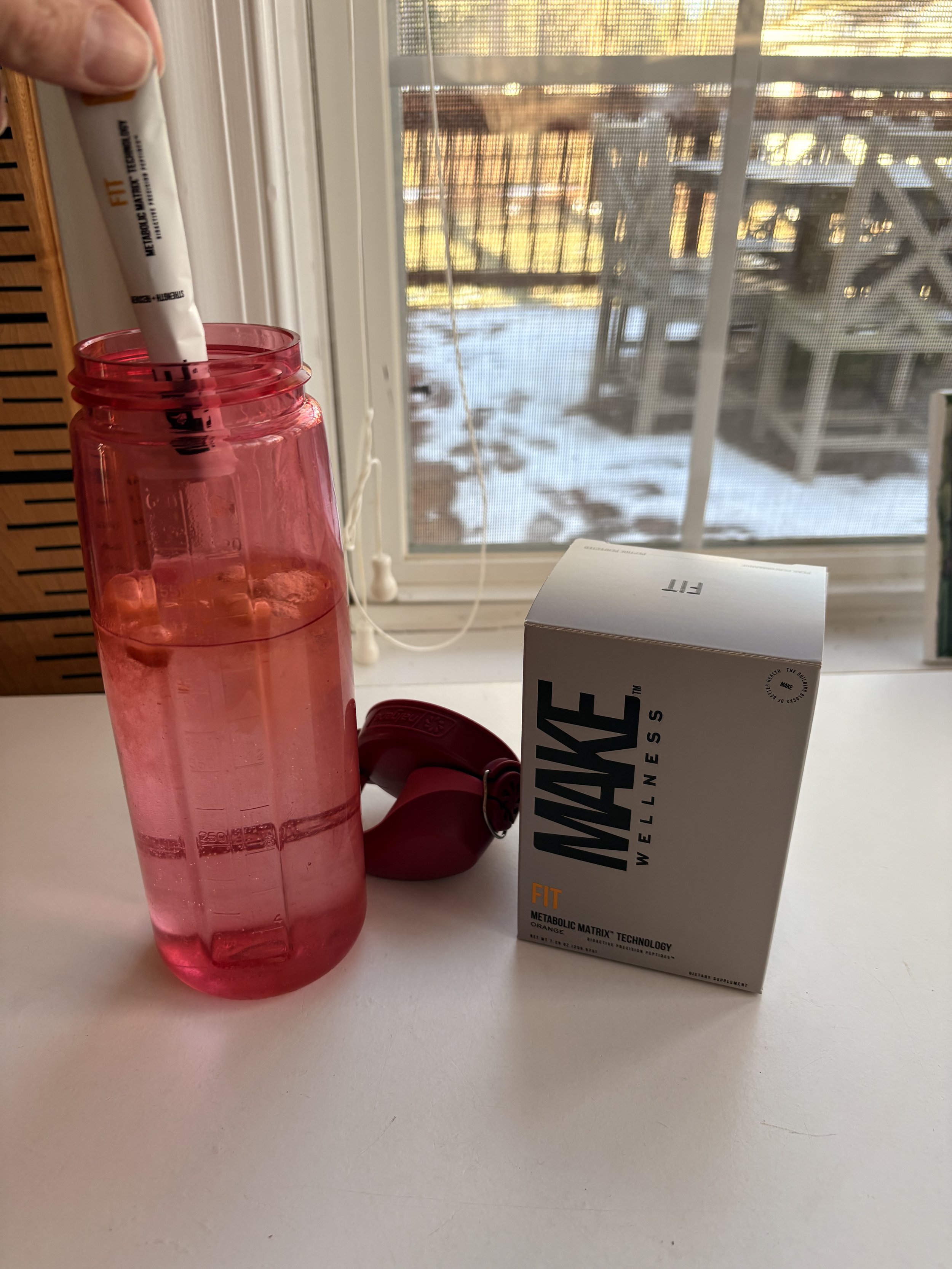I got the question "Are there supplements I should be taking?" after sending a podcast to a friend and client that was sponsored by supplement companies. There is no one-size-fits-all answer to this question. So, I thought I would take the time to answer her and any of you that may have the same question.
Supplements are just that, designed to supplement your current diet. Does anyone absolutely need supplements? Yes. Lets start with a history lesson that you may already know:
Scurvy. Scurvy is a disease that results from a deficiency of Vitamin C. Surely a deficiency of Vitamin C, can't kill you though, right? Wrong! According to Science History Institute, between the time that Columbus sailed the ocean blue and the 1850s, millions died from scurvy. It was so prevalent that governements and ship owners expected 50% of their crew and passengers to die before making landfall. The reason? No access to the fresh fruits and vegetables that provide adequate amounts of Vitamin C. Thankfully, only about 7% of people in the U.S. today have a vitamin C deficiency severe enough to cause the disease. If those sailors had access to a Vitamin C supplement, they wouldn't have died at sea!
Let's move on to one that does have a high prevalence of deficiency in the United States today: Vitamin D. Accoridng to Cleveland Clinic more than 1/3 of the adult population in the United States has Vitamin D defficiency. If we look at Vitamin D insufficiency, that number is even higher. Vitamin D deficiency causes: muscle aches, bone pain, fatigue, disrupted sleep, recurring infections (Vit. D affects the immune system), depressed mood, weight gain or overeating and brain fog, amongst others. Vitamin D plays a crucial role in many aspects of our health, not just our bones, so making sure that you get a sufficient amount is very important!
Another mineral that has a high prevalence of deficiency is Magnesium. According to healthline, somewhere between 2.5 and 15% of Americans are deficient in magnesium, but I have heard much higher rates quoted lately. The probability that you are deficient in magnesium rises if you have type II diabetes or celiac's disease. Low levels of Magnesium cause a wide range of symptoms including trouble falling and staying asleep, fatigue, muscle twitches and cramps, high blood pressure, osteoporosis, nausea and irregular heartbeat.
So, where do you start to know what supplements you may need to be taking? I would start with getting a physical and routine bloodwork done at your doctor's office. If you go to your doctor and they run tests and discover that you are deficient in a certain vitamin or mineral, they will probably tell you to start taking a supplement to bring you back up to normal range.
Here is my most recent personal journey with supplementing: a little less than a year ago, I had a physical done that included routine blood work and I asked to have my vitamin D level checked. I was deficient in Vitamin D. Could that have been why I had been feeling so tired and my immune system hadn't worked so well over the last year? Possibly. So I started a new, higher quality and higher dosage Vitamin D supplement. I had my levels rechecked a couple of months ago and they were within normal range, but still insufficient and definitely not optimal, so I am continuing to supplement and will have my levels checked again in June. I was continuing to feel overly tired when I had my vitamin D levels rechecked and my doctor found that I was deficient in iron also. She recommended a specific iron supplement which I promptly bought and began taking. I will also have those levels checked again in June. Those are two personal examples of needing to take a supplement to support my overall health and wellbeing. If you haven't had a physical in the past few years and/or haven't had your bloodwork done, now is a good time to schedule that appointment. The more you know, the better you can do for your health!
Are there supplements that I take that I don't necessarily need to take? Yes. In February I started taking MAKE Wellness FIT which is a bioactive precision peptide supplement. It also contains vitamin D, Vitamin B6, Vitamin B12, Magnesium and caffeine. Am I deficient in any of those things? Well, we already established Vitamin D, and I don't know about the vitamin Bs, but they are water soluble vitamins (your body easily gets rid of any excess) that help with energy production and are only toxic at VERY high doses, so I feel comfortable taking them. I am not defficient in Magnesium. Mine was within normal range, but it's a relatively small amount in this supplement and my levels were not at the top end of the range. Since magnesium has lots of great benefits from improving gut health to better sleep, I am comfortable taking it with continued monitoring of my blood levels. The peptide part of the supplement is a nutritional supplement (peptides are small parts of proteins) with a specific function. I choose to use this supplement to build and retain muscle mass, decrease my recovery time between workouts and reduce delayed onset muscle soreness. I would consider this to be a performance enhancing supplement. Do I need it? No. Is it affecting my health positively and increasing my quality of life? Yes, I think it is. It seems to be doing exactly what the creators intended and tested it for!
Do I think that everyone should be supplementing with Vitamin D, Magnesium, Vitamin B, Peptides, etc., etc.? No. Every body is different and needs different things. Get your bloodwork done, supplement with specific vitamins and minerals to bring your body to optimal levels and then take a look at peptides for an added boost. There are peptides that support focus, aid energy production, promote healing, regulate hunger and satiety cues and many other incredible things!
If you have any questions, please reach out to me through a direct message or rebekah@trainwithrebekah.com
Disclaimer: I am not a doctor. This is not a prescription! Consult your physician for specific supplement advice.





















